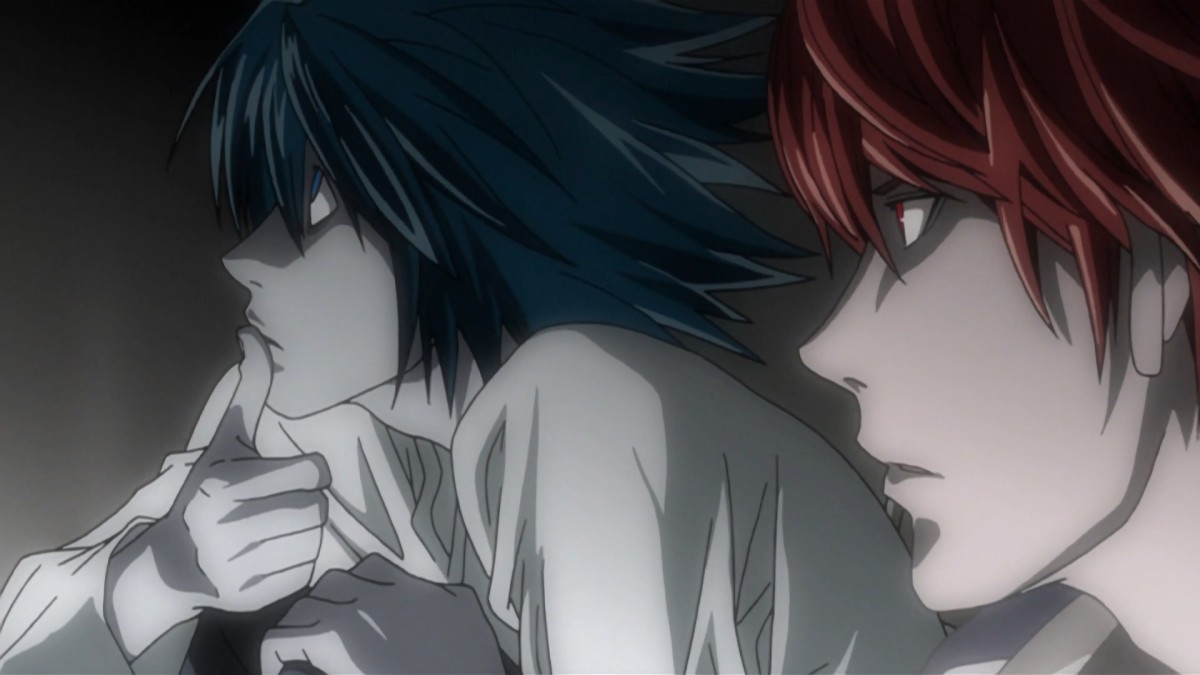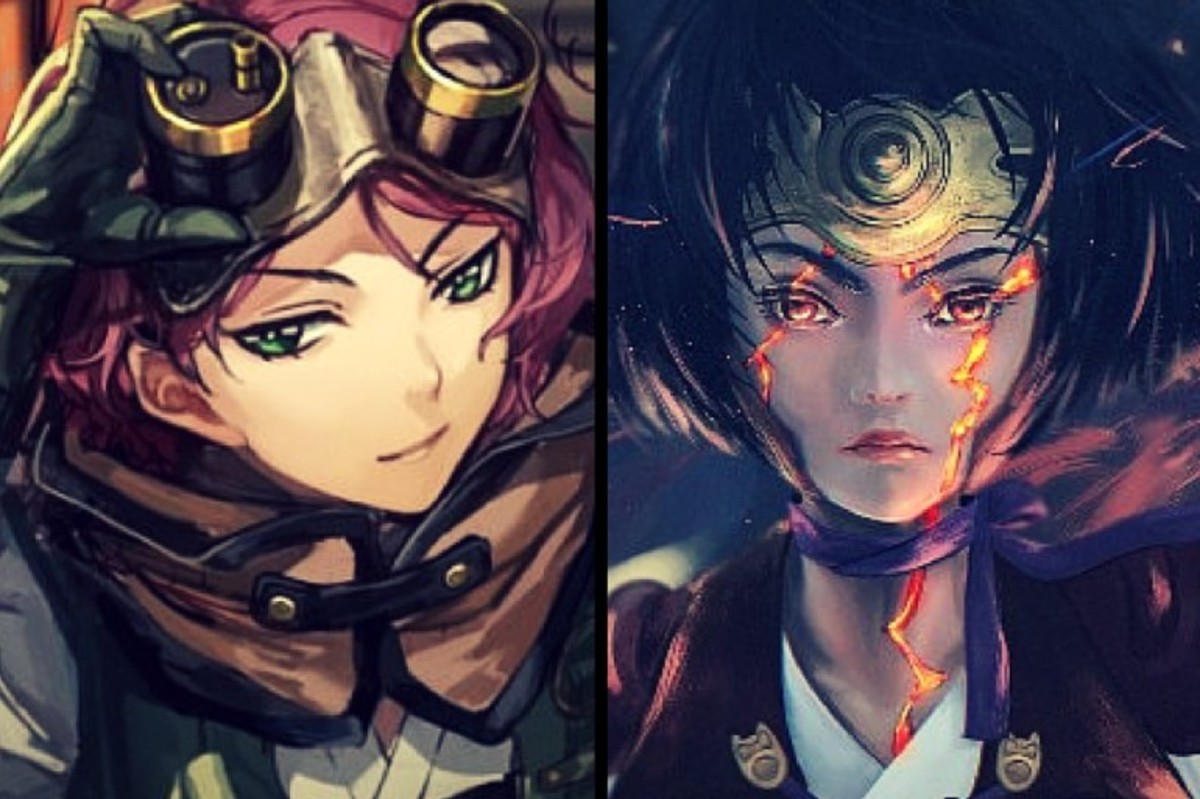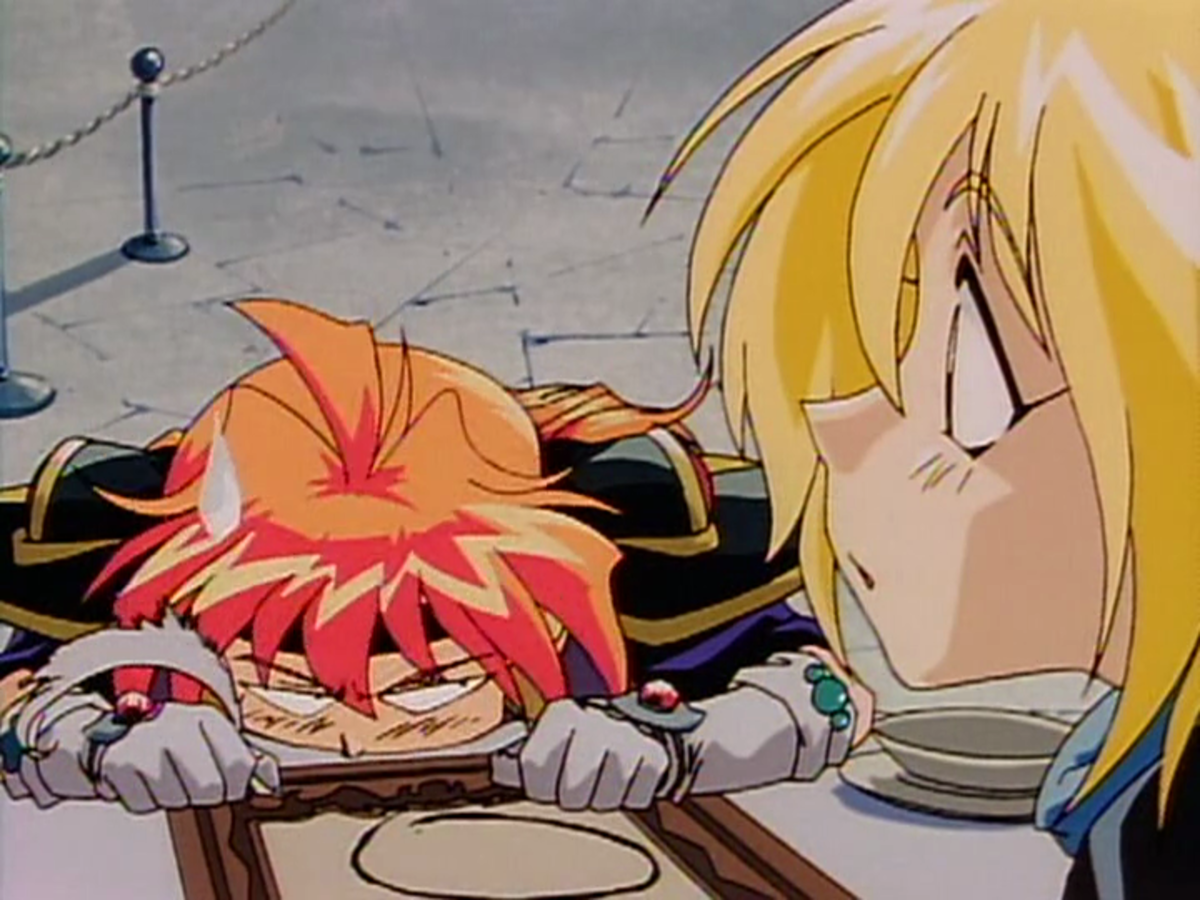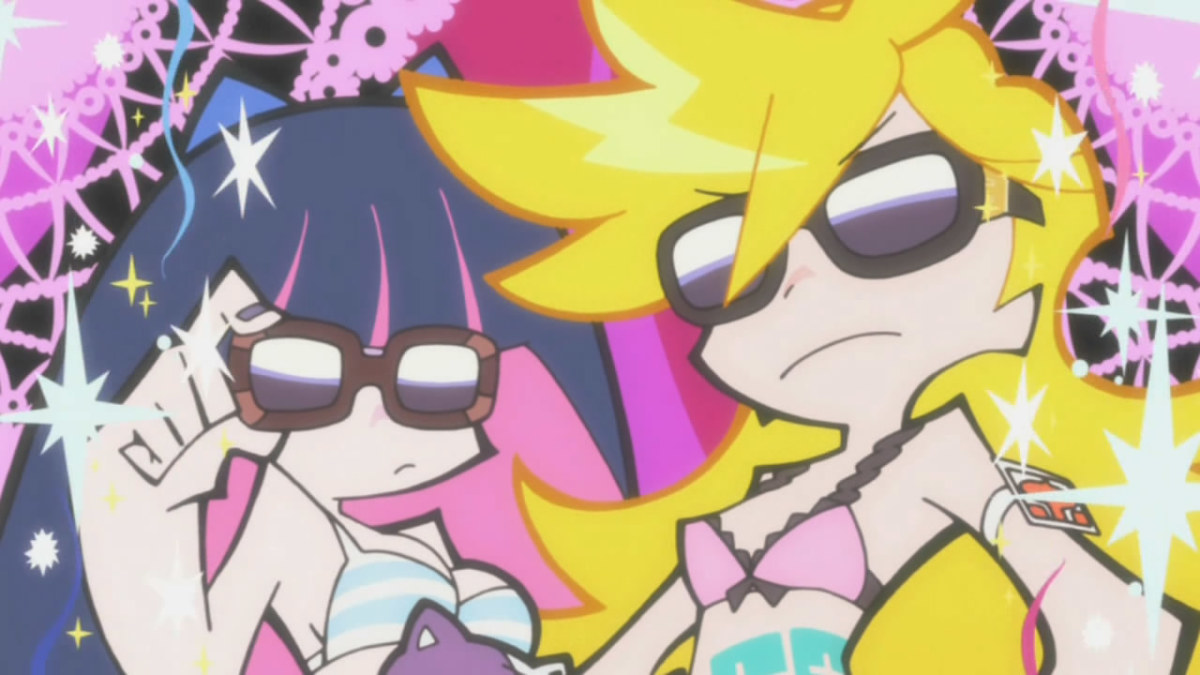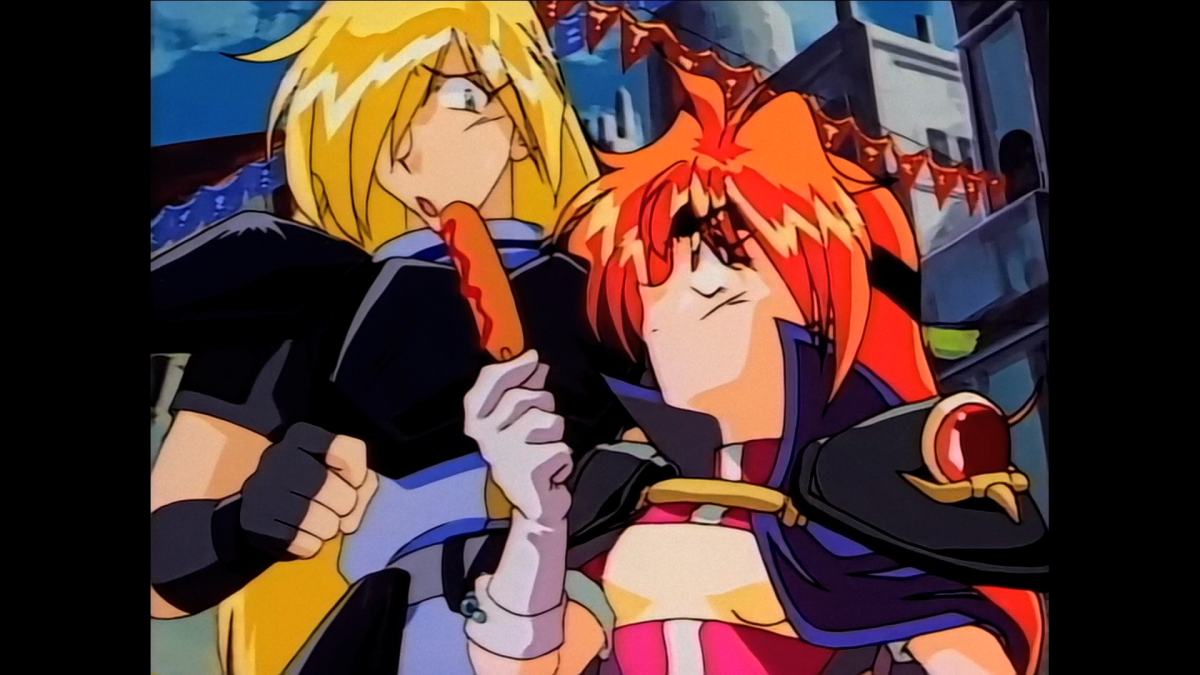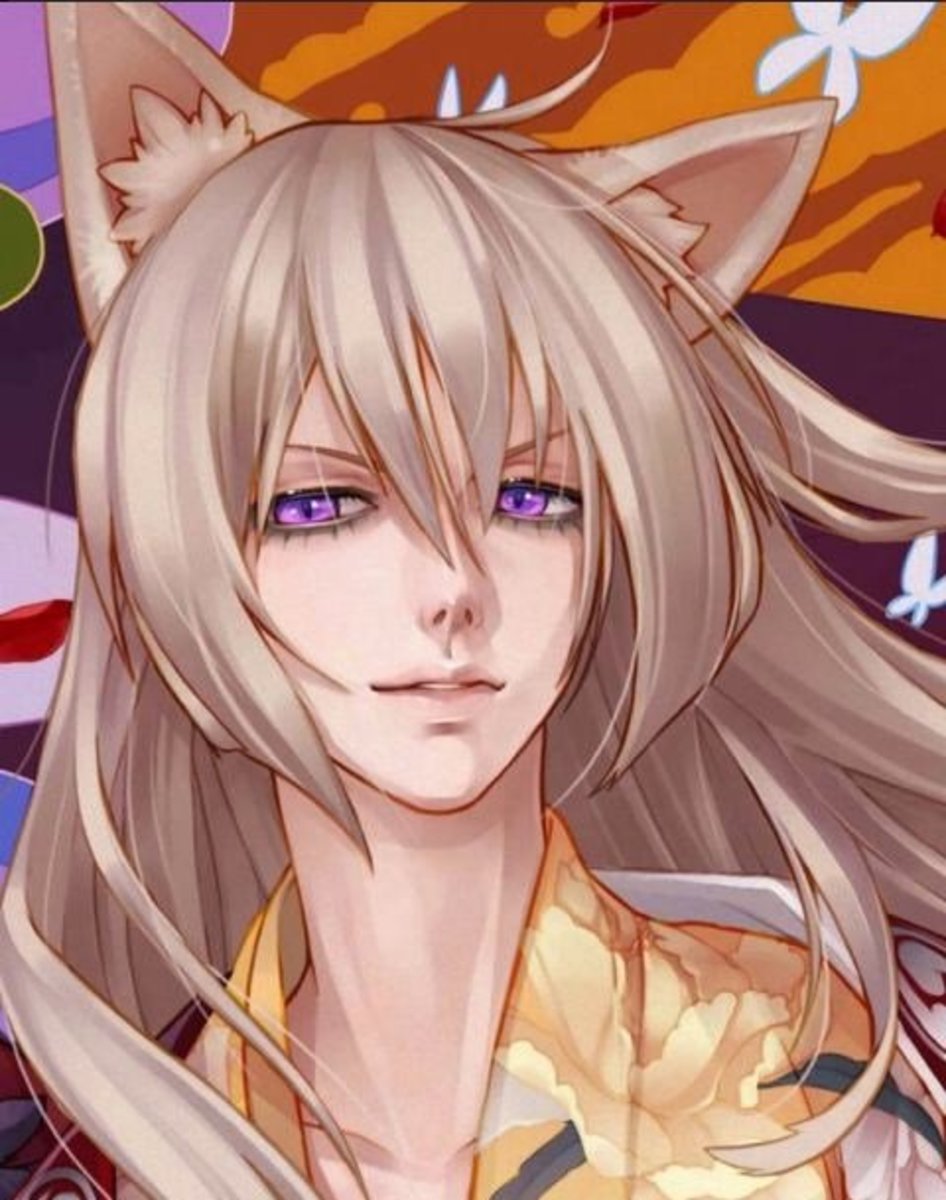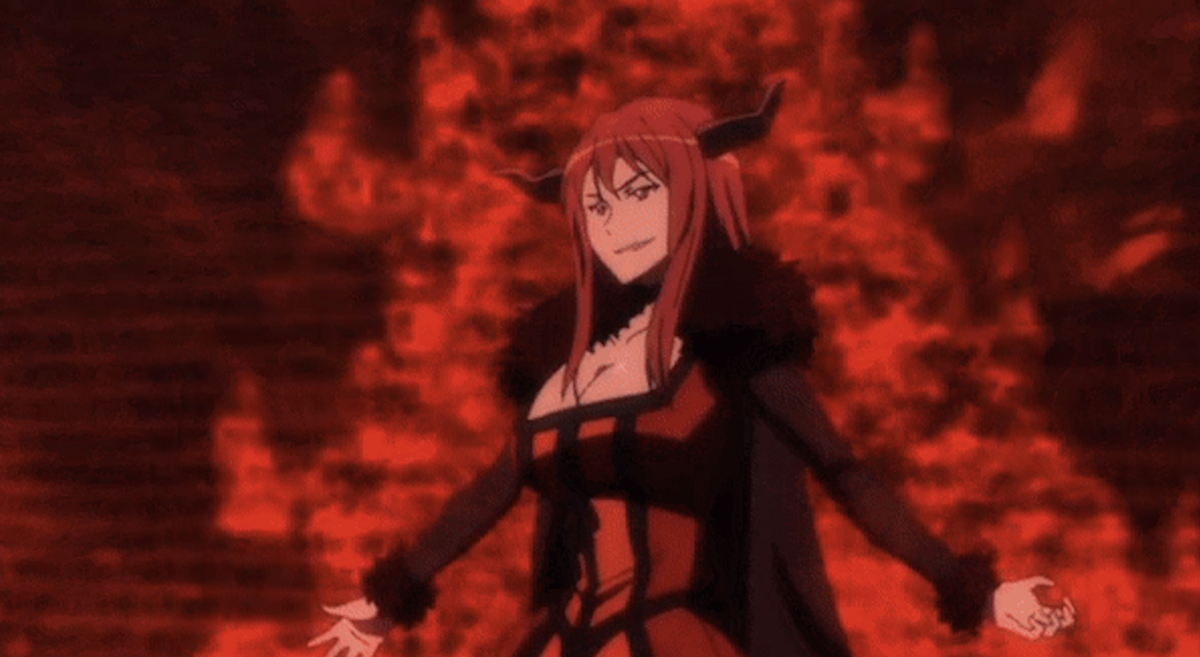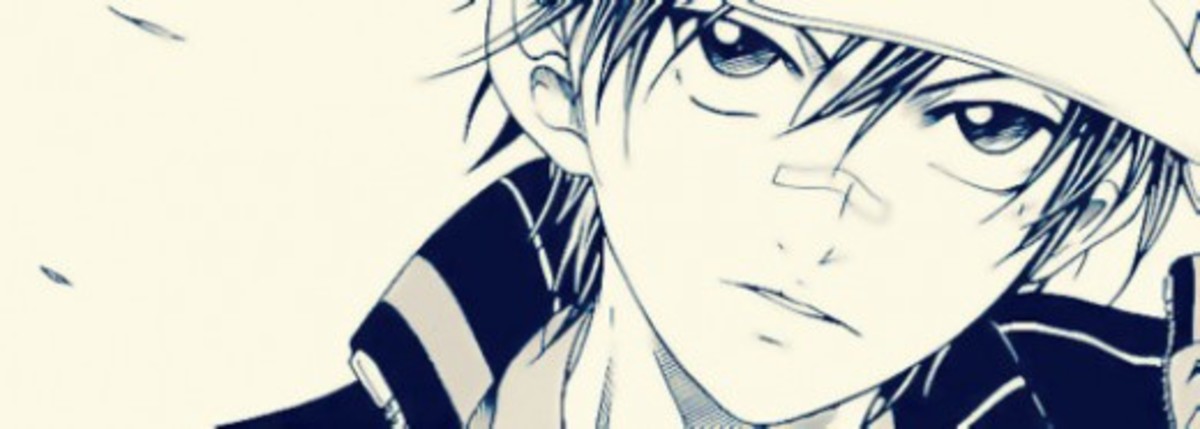Anime Reviews: Kara no Kyoukai
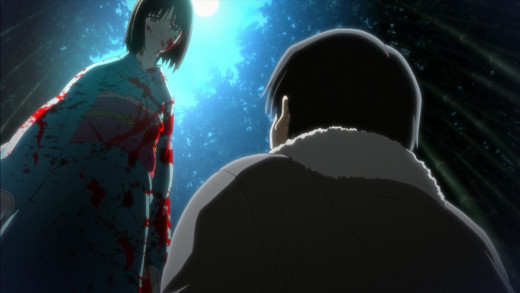
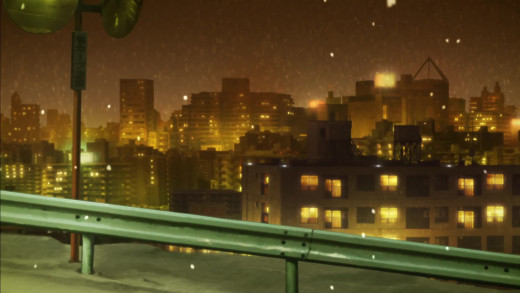
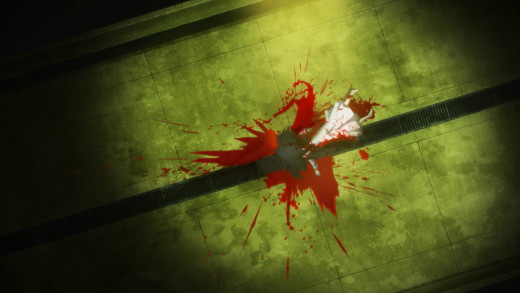
The obfuscated themes and distant characters make it nigh-impossible to be drawn in, but Kara no Kyoukai's aesthetics and story make it well worth the effort.
Title: Kara no Kyoukai a.k.a. Boundary of Emptiness a.k.a. Kara no Kyoukai: The Garden of Sinners a.k.a. The Garden of Sinners
Genre: Action/Drama
Production: ufotable
Series Length: 7 films
Air Dates: 12/1/2007 to 8/8/2009
Age Rating: 17+ (strong violence, dark or disturbing thematic elements, brief disturbing sexual content)
Summary: The town of Mifune is being plagued by a series of grisly murders. Kokutou Mikiya is a studious high-schooler who takes interest in not only these crimes, but also in Ryougi Shiki, a cold and unsociable girl who seems to be connected to the cases somehow. Mikiya learns that Shiki possesses dual personalities--a trait passed down through her family--and that it has caused her to distance herself from other people, and her budding relationship with Mikiya begins to drive a wedge between her two selves. As to the murders occurring around town, Shiki's peculiarities make her the most likely suspect, but Mikiya is confident that Shiki could never do such a thing--something else, something much more sinister, lurks within the dark shadows of the city...
The Good: Entrancing visuals and music; individual stories work exceptionally well; rewards multiple viewings...
The Bad: ...because it's basically impenetrable; main characters largely feel cold and distant
The Ugly: What's with Type-Moon and their villains holding still-beating hearts?
Good Lord, this was a tough sit. Getting through seven movies in a row doesn't sound like it'd be rough, but man. I really had to push myself at first. But anyway, onto the important things: Kara no Kyoukai is a story that takes place in the "Nasuverse," a term that describes the various works of Type-Moon including Tsukihime, the Fate series, and this lovely series of films. What makes this title unique, though, is that it is among the earliest projects released by Type-Moon (at least in its light novel format). So that's somethin'. When it comes to Type-Moon, I've never strayed too far from the Fate series, so I had absolutely no idea of what to expect from Kara no Kyoukai (because I wasn't about to import the light novels, dangit), and I've seen hype for these films up and down in just about every anime community I've come across, so now that I've actually watched the series, I can safely say...it's okay? I guess? Let's get down to it.
First of all, let's talk about the production company, ufotable. Before these films, they were just a secondary animation studio who did in-between work for bigger studios, and this was their chance to shine. And holy crap, did they ever. It doesn't surprise me as much, as they were responsible for the always-amazing-looking Fate/Zero (which I will never shut up about because it's that awesome) just a few years later, but some of the animation in these films still manages to blow me away. I was already setting my expectations high, so I can't imagine how an unsuspecting fanbase who've never heard of them would've handled it (probably with slacked jaws and soiled pants, I'd say).
If you want the skinny on how beautiful the animation is, you can either see my Fate/Zero review and multiply that by 10, or just watch this scene from the first episode/film/whatever. Dark colors, smooth shadows, bombastic camerawork and lighting, and detailed movements make for a delightful experience for the eyes. Well, okay, the gore present all throughout the series may not be delightful at all, but you know what I mean.
And if the visuals are exemplary, then the soundtrack is even more so. Short version: It's Yuki Kajiura, case closed. Long version: If Fate/Zero houses some of Yuki Kajiura's best work, then Kara no Kyoukai is where much of the rest resides. Finding samples to show you is surprisingly tricky, but just judging from this montage containing the various incarnations of Shiki's theme, as well as the clip offered above, it should be obvious the level of musical genius we're talking about here. The soundtrack speaks for itself, so I won't sit here and fellate it any longer (though I wouldn't be opposed to doing so...).
As awesome as the soundtrack is, let's talk about where the films are at their strongest: the stories. Right from the get-go, we're thrown into an interesting mystery with intriguing supernatural elements--unusual suicides have been occurring at a derelict corporate building, and the cause seems to be a disembodied voice compelling the victims to do so--and the resolution is both poignant and unique. And as the films go on, the stories become more mysterious and more intense (with films 5 and 7 being the strongest). The overarching plot involving Shiki and Mikiya is interesting enough to keep your attention, but it's the secondary story arcs that really sell the series as being one of the more memorable titles on the market.
And it's a good thing the narrative is engaging, because the series encourages you to give it multiple viewings to catch everything. The films are loaded--absolutely loaded--with dialogue and quick shots and tiny details, and if you want the full immersion experience, then yeah. Giving the series multiple viewings is definitely a good way to go. However, the reason it works so well for multiple sit-throughs is also one of the worst aspects about the series...
You catch so much more on repeated viewings because the damn thing is just so freaking impenetrable. Many concepts and ideas are brought up (duality being among the chief ones), but the film'll be damned before they ever elaborate on any of them. There's so much stuff being thrown at the screen that there's no way you'll ever take it all in in one go, and if you don't get it, they're not gonna wait for you to catch up--time's a-wastin', son, move it move it move it!
But the worst sin the films commit is failing to make its leads relatable or at least interesting. We constantly have to be told that Shiki is kind despite her behavior and that Mikiya is tough despite his appearance, because if we were never told these things, they would never be apparent to the viewer. Shiki spends all her time brooding and moping when she's not in Action Girl Mode, and Mikiya spends his days doing bland nice-guy stuff. Now, side characters like Touko (their snarky boss), Alba (a flamboyant magus who serves as an antagonist), Tomoe (a young punk involved with the events of Movie 5), and even Azaka (Mikiya's flaky but earnest sister) are much more interesting and entertaining to watch than Brooding White-Toast Shiki and Demure Dry-Oatmeal Mikiya. It just irritates me anytime a series has a colorful secondary cast with a drab, monochrome main cast, and Kara no Kyoukai really should know better.
So that's Kara no Kyoukai. I was expecting something revolutionary that would change my perspective on anime as a whole (as many claimed it would), but alas, my perspective remains largely unchanged. The films are technical masterpieces and the narrative is engrossing, but I just wish the writers would've been more straightforward with the underlying themes and given the leads a bit more humanity. Those really are the only criticisms I can think of, but they are, sadly, major ones. Just enough to make the series "pretty great" instead of "mind-blowing," and considering the devoted fanbase it has garnered, that just seems to be a damned shame. I would still highly recommend you go see it, but just be warned that it might not be the life-changing experience others have made it out to be.
Final Score: 8 out of 10. Based purely on its aesthetics and story, Kara no Kyoukai would be a revolutionary classic as its fans claim, but its extreme unfriendliness to newcomers and stale leads keep it from the heights it desperately wanted to reach.

